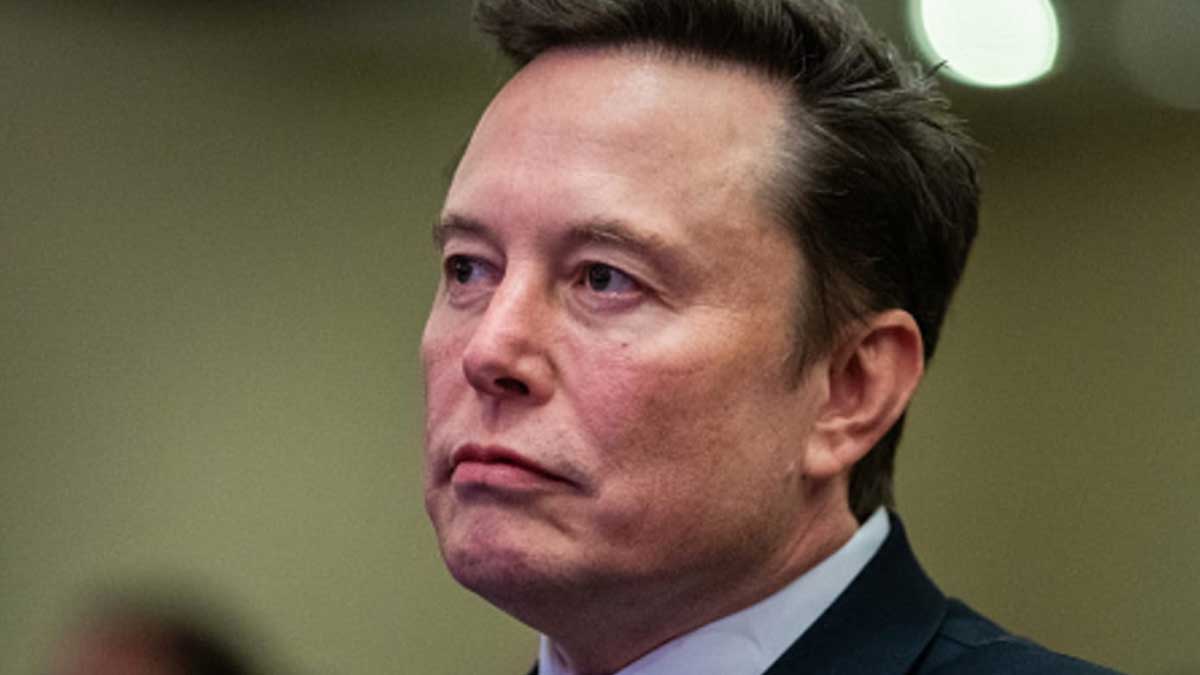- Home
- Billionaires
- Investing Newsletters
- 193CC 1000
- Article Layout 2
- Article Layout 3
- Article Layout 4
- Article Layout 5
- Article Layout 6
- Article Layout 7
- Article Layout 8
- Article Layout 9
- Article Layout 10
- Article Layout 11
- Article Layout 12
- Article Layout 13
- Article Layout 14
- Article Sidebar
- Post Format
- pages
- Archive Layouts
- Post Gallery
- Post Video Background
- Post Review
- Sponsored Post
- Leadership
- Business
- Money
- Small Business
- Innovation
- Shop
Recent Posts
Carr’s FCC Nomination and Musk’s Potential Gains

President-elect Donald Trump has nominated Brendan Carr to lead the Federal Communications Commission (FCC) in his upcoming administration. Carr, a current FCC commissioner, has been a vocal proponent of conservative policies and an ardent supporter of Elon Musk and his businesses. This nomination has stirred discussions about the potential financial advantages Musk could gain if Carr secures the position of FCC chair.
Brendan Carr has consistently advocated for reducing regulatory oversight and shifting the FCC’s focus. He has called for dismantling what he terms a “censorship cartel” that he believes is biased against conservative voices, along with curbing regulatory overreach. His proposals also include abolishing diversity, equity, and inclusion initiatives, reflecting a significant departure from the FCC’s current direction under Democratic leadership. These priorities have aligned closely with broader Republican efforts to reshape federal agencies and reduce their influence.
Carr has frequently expressed support for Musk’s businesses, particularly SpaceX’s Starlink, which provides satellite internet services. In 2023, he accused the Biden administration of engaging in “regulatory harassment” against Musk’s enterprises, including SpaceX and the social media platform X (formerly Twitter). Carr also criticized actions taken by the Brazilian government against Musk’s companies, describing them as “unlawful and partisan political actions.” These statements have positioned Carr as a staunch ally of Musk, raising concerns about impartiality in regulatory decisions.
Musk’s companies have extensive dealings with the federal government, making the FCC’s leadership pivotal for their operations. Starlink, for instance, was previously denied $885 million in subsidies for rural broadband expansion under the current FCC, which cited concerns about the company’s ability to meet service requirements. Carr has indicated he would revisit this decision and suggested that Starlink could be reintegrated into federal broadband programs under his leadership. Such a shift would likely provide a financial boost to Musk’s satellite internet business.
Carr’s broader policy proposals also include imposing stricter rules on major tech companies, such as requiring increased transparency and limiting their legal immunity. While these measures could impact Musk-owned X, it remains unclear whether Carr’s policies would favor Musk’s platforms over competitors. Carr has downplayed claims of favoritism, stating his regulatory approach is consistent with his philosophy over the past four years.
Carr’s nomination has drawn additional scrutiny due to his involvement with Project 2025, a conservative policy agenda developed by groups like the Heritage Foundation. He authored the FCC chapter of the project, which advocates for penalizing social media companies for alleged viewpoint discrimination, overhauling their legal protections, and banning TikTok. Project 2025 has been polarizing, with critics labeling it an extreme right-wing initiative. While Trump has publicly distanced himself from the project, Carr’s association with it underscores his alignment with conservative priorities.
Musk’s relationship with the federal government has been multifaceted, involving both extensive financial support and increased regulatory scrutiny. Tesla and SpaceX alone have reportedly secured over $15.4 billion in government contracts. However, Musk’s businesses have also faced investigations from multiple agencies, including the Departments of Justice, Labor, and Transportation. Carr’s leadership at the FCC could potentially reduce regulatory pressures on Musk’s companies, aligning with Trump’s broader efforts to support the billionaire entrepreneur. Trump has further cemented his alliance with Musk by appointing him to co-lead a new “Department of Government Efficiency,” tasked with reducing federal spending.
The role of FCC chair requires Senate confirmation, where Carr’s nomination is expected to face opposition from Democrats and advocacy groups concerned about his policies. Despite these challenges, the anticipated Republican majority in the Senate increases his chances of confirmation. Critics have raised concerns about Carr’s impartiality, particularly regarding his support for Starlink. The current FCC leadership rejected Starlink’s rural broadband bid due to financial and technical deficiencies, stating the company failed to demonstrate its ability to meet service requirements. Carr’s proposals to revisit such decisions have heightened fears of corporate favoritism.
Elon Musk has openly endorsed Carr’s nomination, calling him a “great choice” and praising his regulatory proposals. Carr’s leadership could reshape the FCC, influencing not only satellite broadband but also policies affecting tech companies and media platforms. His potential confirmation represents a significant shift in the FCC’s priorities, emphasizing deregulation and a business-friendly approach.
Carr’s nomination is part of a broader series of controversial appointments by Trump, including figures like Matt Gaetz as attorney general and Robert F. Kennedy Jr. as health secretary. These choices reflect Trump’s preference for officials who align closely with his political and ideological vision. As Carr awaits Senate confirmation, his nomination highlights the growing intersection of politics, business interests, and regulatory decisions in shaping federal agencies.
Recent Posts
Categories
- 193cc Digital Assets2
- 5G1
- Aerospace & Defense46
- AI37
- Arts3
- Banking & Insurance11
- Big Data3
- Billionaires449
- Boats & Planes1
- Business328
- Careers13
- Cars & Bikes76
- CEO Network1
- CFO Network17
- CHRO Network1
- CIO Network1
- Cloud10
- CMO Network18
- Commercial Real Estate7
- Consultant1
- Consumer Tech180
- CxO1
- Cybersecurity68
- Dining1
- Diversity, Equity & Inclusion4
- Education7
- Energy8
- Enterprise Tech29
- Events11
- Fintech1
- Food & Drink2
- Franchises1
- Freelance1
- Future Of Work2
- Games141
- GIG1
- Healthcare78
- Hollywood & Entertainment186
- Houses1
- Innovation42
- Investing2
- Investing Newsletters4
- Leadership65
- Lifestyle11
- Manufacturing1
- Markets20
- Media193
- Mobile phone1
- Money13
- Personal Finance2
- Policy567
- Real Estate1
- Research6
- Retail1
- Retirement1
- Small Business1
- SportsMoney33
- Style & Beauty1
- Success Income1
- Taxes2
- Travel10
- Uncategorized8
- Vices1
- Watches & Jewelry2
- world's billionaires418
Related Articles
Trump Moves $4B Stake in Truth Social Parent, Stock Drops 6%
Donald Trump recently transferred his 57% stake in Trump Media & Technology...
By 193cc Agency CouncilDecember 20, 2024House Rejects Trump-Backed Funding Bill, Shutdown Looms
The U.S. House of Representatives rejected a new government funding bill on...
By 193cc Agency CouncilDecember 20, 2024Trump Named Time’s Person of the Year for Second Time
On Thursday, Time magazine honored Donald Trump as its “Person of the...
By 193cc Agency CouncilDecember 12, 2024Meta Donates $1 Million to Trump’s Inaugural Fund
Meta, the parent company of Facebook and Instagram, has confirmed a $1...
By 193cc Agency CouncilDecember 12, 2024















Leave a comment